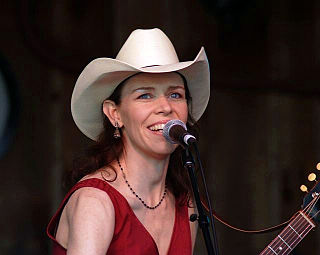A Quote by Hanya Yanagihara
Many writers hate the shilling process, and I understand that. However, it's really the only thing about the publication process you can somewhat control. You can't affect reviews. But you can try to find your book an audience. One of the problems with the book publishing industry is that their publicity efforts tend to be spent on people who already read, and know how to discover, literary fiction.
Quote Topics
About
Affect
Audience
Book
Book Publishing
Control
Discover
Efforts
Fiction
Find
Hate
How
However
Industry
Know
Know How
Literary
Many
Only
People
Problems
Process
Publication
Publicity
Publishing
Publishing Industry
Read
Really
Reviews
Somewhat
Spent
Tend
The Only Thing
Thing
Try
Understand
Writers
Your
Related Quotes
Publishing is the only industry I can think of where most of the employees spend most of their time stating with great self-assurance that they don't know how to do their jobs. "I don't know how to sell this," they explain, frowning, as though it's your fault. "I don't know how to package this. I don't know what the market is for this book. I don't know how we're going to draw attention to this." In most occupations, people try to hide their incompetence; only in publishing is it flaunted as though it were the chief qualification for the job.
In general, fiction is divided into 'literary fiction' and 'commercial fiction.' Nobody can definitively say what separates one from the other, but that doesn't stop everybody (including me) from trying. Your book probably will be perceived as one or the other, and that will affect how it is read, packaged and marketed.
Now, almost twenty years since my last job in book publishing, I know that there are far more socially inept people in book than in magazine publishing. At the time, however, I just didn't feel I was enough: smart enough, savvy enough, well read enough, educated enough, charming enough. Much of this was probably because I was very naive, and didn't really know how to behave in an office. This made me a terrible assistant, which in turn made me a terrible junior book editor.
I read continually and don't understand writers who say they don't read while working on a book. For a start, a book takes me about two years to write, so there's no way I am depriving myself of reading during that time. Another thing is that reading other writers is continually inspiring - reading great writers reminds you how hard you have to work.
First one gets works of art, then criticism of them, then criticism of the criticism, and, finally, a book on The Literary Situation , a book which tells you all about writers, critics, publishing, paperbacked books, the tendencies of the (literary) time, what sells and how much, what writers wear and drink and want, what their wives wear and drink and want, and so on.
My books are based on the "what if" principle. "What if you became invisible?" or "What if you did change into your mother for one day?" I then take it from there. Each book takes several months in the long process of writing, rewriting, writing, rewriting, and each has its own set of problems. The one thing I dislike about the writing process is the sometimes-loneliness of it all. Readers only get to see the glamour part of a bound book, not some of the agonizing moments one has while constructing it.
I want my books to exist in the literary world, not only in the art world. I am interested in having a dialogue with other writers, and the readers of those writers. Someone who is reading a book of mine might not have visited my exhibitions related to it, but can still have a full, literary experience with that book. This would be a completely different experience from stepping into the show, not having read the book. One form is not illustrative of the other.
Say you're an American novelist, published by the largest publishing house in the world. Their goal is to make as much money from you as possible, to have as many people read your book in as many formats as possible. How can you hope to speak intimately to the numbers of people that represent the book sales required?
I'd be surprised if non-fiction writers hate to be interviewed. We all hate them, because there's really nothing to say except "Read the book." Right? At least with non-fiction, you can kind of convey some information, and people can decide for themselves whether they want more of that kind of information. But with a novel, what am I going to do?
Literary men now routinely tell their readers about their divorces. One literary man who reviews books wrote, in reviewing a study of Ruskin, that he had never read a book by Ruskin but that the study confirmed him in his belief that he didn't want to read a book by Ruskin. This man very often writes about his family life.
So many book sections in newspapers and magazines used to be lively and vibrant places. Now they are gone. You just don't see many reviews anymore. I can't control that, so I don't worry about it. I just try to do what I do and write books that people find every entertaining. I don't worry about the critics.
Writing is a process and you must trust the process! Fear and anxiety are part of that process along with the enthusaism and the good days and the joy and the passion and the great hopes you have for a book. But when you run into problems, when you get stuck or scared, you must trust that that is part of how a book comes to pass, and what you need to do is get very still and quiet because Self will tell you how to get out of a hole you've dug for yourself.





































